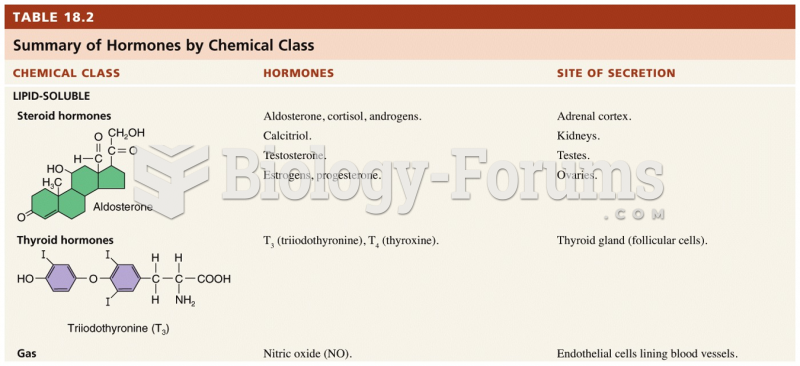|
|
|
Children with strabismus (crossed eyes) can be treated. They are not able to outgrow this condition on their own, but with help, it can be more easily corrected at a younger age. It is important for infants to have eye examinations as early as possible in their development and then another at age 2 years.
More than 150,000 Americans killed by cardiovascular disease are younger than the age of 65 years.
The Centers for Disease Control and Prevention has released reports detailing the deaths of infants (younger than 1 year of age) who died after being given cold and cough medications. This underscores the importance of educating parents that children younger than 2 years of age should never be given over-the-counter cold and cough medications without consulting their physicians.
Sildenafil (Viagra®) has two actions that may be of consequence in patients with heart disease. It can lower the blood pressure, and it can interact with nitrates. It should never be used in patients who are taking nitrates.
Thyroid conditions may make getting pregnant impossible.
 Moderate to high physical activity in PE classes is one component of a successful prevention effort ...
Moderate to high physical activity in PE classes is one component of a successful prevention effort ...
 Horizontal, sagittal, and coronal functional MRIs show areas of increased activity in the primary ...
Horizontal, sagittal, and coronal functional MRIs show areas of increased activity in the primary ...





